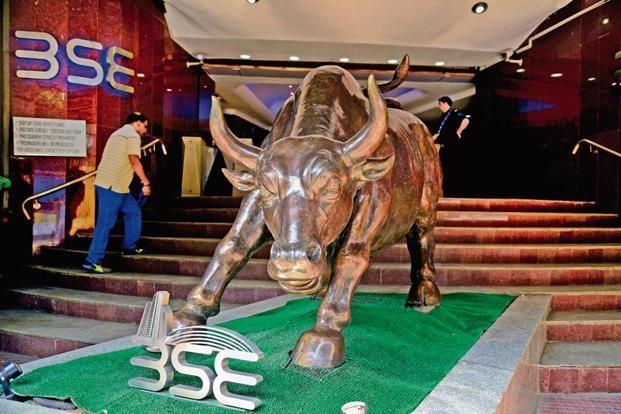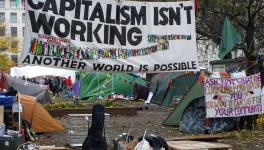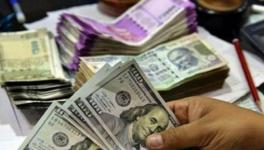Finance Versus the People

Sometimes even a tiny news-item can reveal volumes about capitalism. The Indian stock market, as is well-known, is booming at present: the 30-share Sensex closed at a new high of 38,278.75 on Monday, August 20, and the broader-based Nifty crossed the 11,500 mark for the first time on the same day. One of the financial sector executives explained the reason behind this boom as follows (The Hindu, August 21): “The only difference between now (versus a few months back) is that politics looks more stable – prospects of an opposition coalition are looking a little shaky”. These financial sector executives know very little about the macro-economy; and when they hold forth on that subject, as they often do, they merely express neo-liberal platitudes. But knowing about the “market” is their bread-and-butter; so the quoted executive’s views must have some truth behind it.
This is not to say that the “market” now believes that an “opposition coalition” will not happen at all. “Market” movements today reflect not what is going to happen months or years from now, but what is likely tomorrow or this afternoon. Even a passing or temporary setback to efforts at an “opposition coalition” enthuses the “market”; this pushes up the market because people buy stocks in the hope of selling them at a higher price tomorrow, to someone else who may still be enthused enough tomorrow to be buying in the belief that he in turn can sell to someone else the day after tomorrow at a still higher price. The point therefore is not the “market’s” prediction about the 2019 election outcome; the point is that an “opposition coalition” dampens the “market”. Or, putting it the other way, the “market” loves Modi and the BJP above all others.
The question is why. After all, Manmohan and Chidambaram are no less “market-friendly” than Modi and Shah. Then why does the “market” have this partiality for the latter? Because unlike the Congress, which is a “fuddy-duddy” liberal bourgeois Party trying to keep its flock together through all kinds of negotiations and compromises even when it remains firmly wedded to neo-liberalism, the Modi-Shah regime is both ruthless in general and ruthlessly neo-liberal. And the “market” likes regimes with both these qualities,regimes that are ruthlessly pro-corporate, and also ruthlessly suppress all dissent, and hence dissent against big corporates.
The “market” in short has a fundamental antipathy towards democracy. It loves authoritarianism; and it loves communal-authoritarianism even more, because the latter, unlike “mere” authoritarianism, is also imbued with an ideology with a potentially powerful mass appeal which is simultaneously divisive and anti-Left, and diverts people’s attention from the abysmal conditions of their material existence. While all bourgeois Parties in the country are neo-liberal, the Hindutva elements have emerged therefore as the darling of the big corporates, both domestic and foreign. They have done so, not only because they are running the country as if there is an undeclared Emergency, but also because their doing so is associated with an appeal to Hindutva “nationalism” that can garner a degree of mass support.
They can suppress opponents of the regime; but they can also, additionally, tarnish them as being “anti-national” which would carry conviction with some people, especially with the support extended to the regime by the pliant media. This fact of their “usefulness” is almost instinctively internalised by all the “market participants”, which is why the Sensex surges at the very mention of any setback to anti-BJP political moves.
While Modi and Shah have carried their pro-corporate stance to new heights, to a point where Modi openly and proudly flaunts it, the BJP’s open partiality towards big capital and the latter’s reciprocal love for the BJP are not new phenomena; they were there earlier as well. In fact when, to everybody’s surprise, Atal Behari Vajpayee’s NDA government was voted out of power in the 2004 elections (since the electorate did not think that “India was shining” as Vajpayee and Advani had claimed), not only did the stock market fall, but questions were also raised in the corporate world about why India went in for such frequent elections!
The Wall Street Journal in fact came up with the most bizarre idea. An article published in it argued that the decision about who should rule a country should be left not just to the people of that country, but to all stake-holders, including the foreign investors who have invested so much money in the country. Therefore foreign institutional investors, and multinational corporations who have projects in the country, should also determine who should form the government, and not just the people.
This was a remarkable example of the inversion of reason, or what Marx had called “reification”, when social relations appear in an inverted form. The ideal of democracy is that the people must decide the social arrangements under which they live. Private property, including the extremely concentrated form of globally-mobile finance, in which it appears in the current epoch, is a social arrangement, whose existence and operation must ideally have the sanction of the people in a democracy. The sovereignty of the people is primary; social arrangements can derive their legitimacy, if at all, only from the will of the sovereign people. To say that finance must have a vote along with the people because they are all “stakeholders”, is to put people’s creations, namely the social arrangements, above (or at least on a par with) the people themselves, which is what reification implies.
But what this entire attitude, then and now, reveals is the deep antipathy of finance towards democracy. Finance, when forced to tolerate democracy, seeks to subvert it by the use of big money in elections, by rampant and unscrupulous use of the corporate-controlled media, and by the general commoditisation of politics and politicians. When perchance, notwithstanding all these efforts, a government committed to a different agenda from the one approved by finance happens to get elected, it makes any transition to an alternative economic regime so difficult, through a whole set of measures from capital flight to the imposition of sanctions by the metropolitan powers, that the new government is usually forced to drop its alternative agenda and to make its peace with finance.
But extremely convenient from its point of view is a situation where a government with close proximity to it manages to perpetuate itself in power by using a religious rhetoric that distracts people from their quotidian problems. In such a case, finance rules within the facade of democracy even as people are incited to focus on hating some hapless minority, while accepting this rule of finance.
“Finance versus the people” in short is not something confined only to the realm of the economy. Of course the hegemony of finance, which manifests itself in a ruthless process of primitive accumulation of capital through an assault on petty producers and peasant agriculture, which swells the reserve army of labour, and which imposes welfare and social expenditure cuts on the government, has the effect of worsening, in absolute terms, the material conditions of the working people, i.e., of the urban workers, the agricultural labourers, the peasants, the fishermen, the craftsmen, the small traders, and others. But this conflict necessarily spills beyond the boundaries of the economic realm, to encompass the realm of the polity.
Finance wants the power of the people to be curtailed. And since democracy, despite all its enfeeblement, provides some power to the people, finance wants democracy curtailed, or, better still, done away with. This simple proposition is missed by liberal thought, which professes its belief both in democracy and in neo-liberal capitalism whose principal feature is the hegemony of finance. There is however an irreconcilable contradiction between the two, which is but an expression of the irreconcilable class antagonism that characterises capitalism. This fact gets flashed fleetingly when the “market” shows an exuberance with the removal of a challenge to communal-authoritarianism. But this fact is central to capitalism.
Get the latest reports & analysis with people's perspective on Protests, movements & deep analytical videos, discussions of the current affairs in your Telegram app. Subscribe to NewsClick's Telegram channel & get Real-Time updates on stories, as they get published on our website.
























